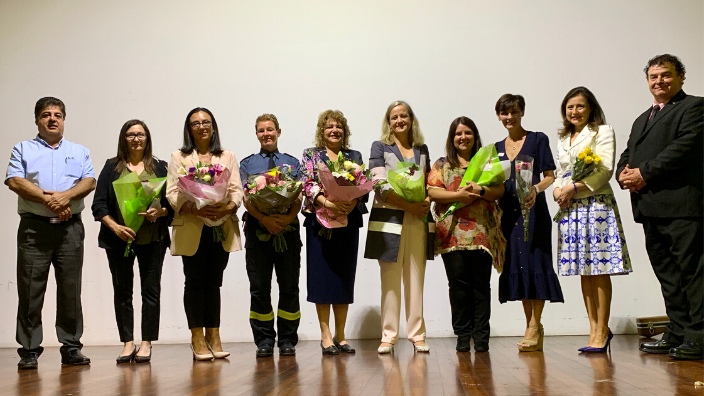By Argyro Vourdoumpa
With an all female panel of guest speakers, among them Greek Australian politician Irene Pnevmatikos and FECCA’s Chair Mary Patetsos, the Greek Orthodox Community of South Australia celebrated women with a special Women’s Day event at Adelaide’s Olympic Hall.
In a day intended to honour the social, political and economic achievements of women around the world and raise awareness towards gender parity, South Australia’s Greek Orthodox Community (GOCSA) joined in the global celebrations with a special event that took place on Sunday evening, at Adelaide’s Olympic Hall.
Women and men, from the Greek and the broader community had the opportunity to reflect on women’s achievements, hear the stories of inspiring female leaders and enjoy a music performance by local musician Tsambika De George.
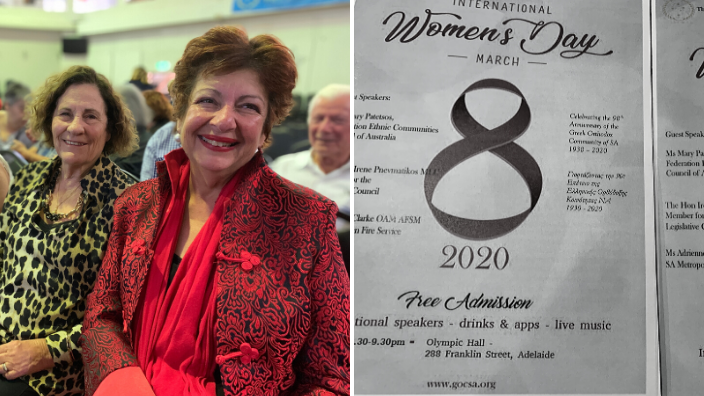
“We will continue to celebrate International Women’s Day each year to keep women’s issues at the forefront of today’s society,” said GOCSA President, Bill Gonis, highlighting that supporting women has been in the organisation’s original charter since its establishment, 90 years ago.
Their welcome messages addressed also Minister of Child Protection Rachel Sanderson who said that despite progress in recent decades, Australia’s domestic violence epidemic, and inadequate access to childcare are just some of the key structural barriers women still face to achieving equality as well as the Mayor of the City of Charles Sturt, Angela Evans.
Irene Pnevmatikos: ‘Climate Change has gender impacts’
“Australia was once a leader in terms of gender equality. In fact, South Australia was the first place in Australia to grant women the right to vote in general elections, and to stand as members of Parliament … Today, Australia is ranked in number 44 of the Global Gender Gap Report.
“It is a fact, that no matter the circumstance women are disproportionately disadvantaged in climate change issues as well as during and after climate disasters, due to significant stress inflicted to men who often resort in violence against them,” said Member of the Legislative Council of Parliament of South Australia, Irene Pnevmatikos.
Ms Pnevmatikos, mentioned also, that women from migrant background with language barriers, face far more challenges.
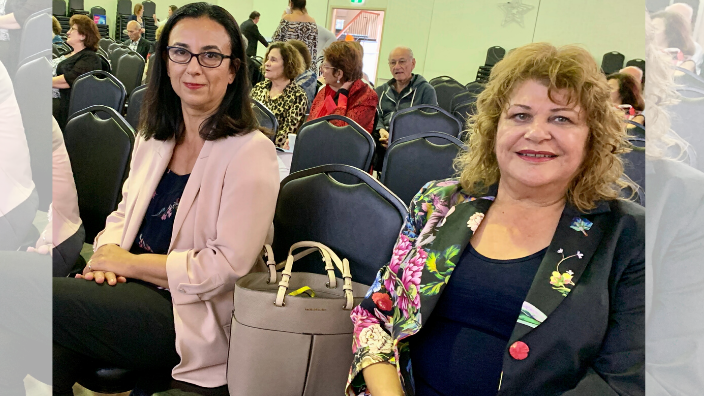
Mary Patetsos: ‘We need to engage fully with young people’
Once a vice president of the GCOSA and a second generation migrant herself, Federation of Ethnic Communities’ Council of Australia Chair Mary Patetsos, said that although the Greek community, as a collective, have been contributing to Australia, some things still don’t work for women.
“It does not work for women that there is not enough of us in senior roles and because of broken career pathways we end up not fulfilling our potential. We still bear the burden -and the joys- of most of children related responsibilities. Childcare is still not affordable sufficiently and there is still, for some women, a lack of secure, permanent employment,” Ms Patetsos said.
Recently voted as one of the 50 most influential personalities in South Australia from SA’s largest newspaper, Patetsos raised the importance for female leaders to influence younger women.
“The only way we can make a difference is to assure we don’t hold on to a little power and that we engage fully with young people,” she said.
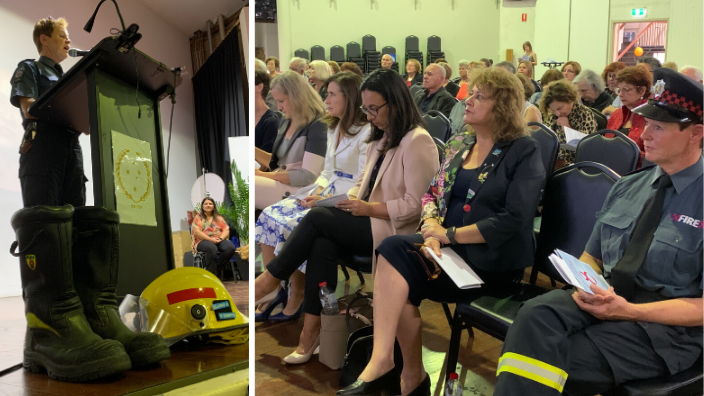
‘We don’t have a single female firefighter from the Greek Community’
The third guest speaker of the event was South Australia’s first female Metropolitan Fire Service (MFS) firefighter, Adrienne Clarke, who for the first 11 years of her career remained the only female firefighter, in an employee population of around 700 men.
“We’ve had to create an environment which is receptive of women in the service. It was difficult to start with … when I started, I was being scrutinised for being different. I think the fire service has matured and expanded its perspective because women are there,” she said adding that MFS don’t have a single female firefighter from the Greek community.
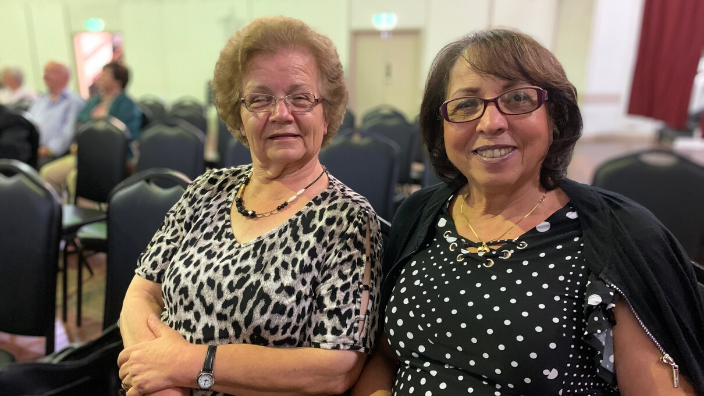
South Australia’s female Greek migrants as role models
In the audience, I met Mrs Efi Georgiou, who migrated to Australia from Cyprus in 1976, after the Turkish invasion.
“We lost everything. I had the option to go to England or to Australia and I chose Australia because the weather is similar to the weather in Cyprus. I consider Australia my second home. Everyone has been welcoming and although we worked hard we managed to help our kids go to university and we are happy,” Mrs Georgiou said.
For the first ten years after she arrived in Australia with her husband and two kids she used to work as a welder in a factory.
“In Cyprus I used to work as a personal assistant. In Australia, I had to start over. I didn’t speak the language you see,
“I worked as hard as my husband did. On top of that I had to look after the family, the kids and the house. Of course we women should have the same rights as men,” said Mrs Georgiou.
